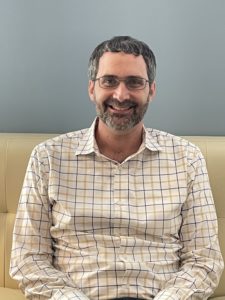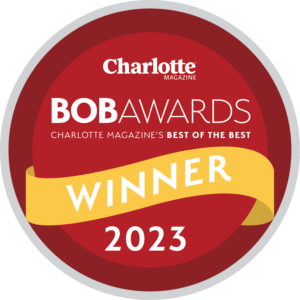To Live is to Choose – Decision Making Tips From Matone Mental Health Pros
Decision Making – Matone Counseling & Testing – Trust Your Gut
The Swiss Physician Paul Tournier wrote The Meaning of Persons in the middle of the twentieth century, before medicine and psychotherapy split into distinct disciplines. As a medical doctor providing therapy, Tournier was struck by the number of patients who sought cures for physical ailments and yet, during the course of psychotherapy, confessed to some decision they couldn’t find the strength to make. Tournier concluded that indecision can you make sick. In his words:
“Prolonged indecision is a poison as far as the person is concerned. It always arises from some inner conflict which one has not had the courage to resolve, or even become aware of…If we run away from the first choices we are faced with, we sink into a twilight in which we no longer see clearly the decisions that have to be made.”
In providing examples, Tournier goes on to describe a class of patients who “look upon their present occupations as provisional”: they are discontent with their current careers but are too afraid to make a bold change; as a result, they persist in a state of “suspended animation,” waiting for their real lives to begin, until they wake up one morning and realize that most of their lives are now behind them. Then they get sick.
What should such a person do? Should they throw themselves wholeheartedly into their current careers—and accept that this is their real (imperfect) life—or set off on a new path, with all of the attendant risk and uncertainty? According to Tournier, the fact of making a choice is often more important than the choice that is made—especially for one’s physical health. Once his patients found the courage to choose, Tournier noticed, “the current of life begins to flow again”—and often their physical health would also improve.
“To live is to choose,” Tournier states. “It is through the making of successive and resolute choices that [persons] trace out [their lives].” And once someone finds the strength to make a long-avoided decision, “Life regains its clarity, the person appears, refreshed and able once more to see clearly and to choose.”
If to live is to choose, then to avoid choice is a kind of death—a denial of, or a refusal to participate in, the basic conditions of existence. To keep the current of life flowing, we must learn to make hard choices, and we must learn to live with them. But how? How do we find the strength to choose? And where do we find the wisdom to choose well?
In a series of articles released during the next few months, I will be exploring the topic of choice, i.e., decision-making. During each article, I will explore one principle for scientifically informed choosing. The first of these you have heard before: trust your gut.
Principle 1: Trust Your Gut.
In exploring the research on decision-making, I think this truism is the right place to begin. I will elaborate on this principle by explaining the science behind it as well as a few practical tips for listening to your gut when it doesn’t seem to be talking.
One interesting experiment on gut feelings involves a taste test for strawberry jam. In this experiment, the University of Virginia psychologist Timothy Wilson recruited some college students to see if they could correctly rank five varieties of jam from best to worst. Previously, a panel of gustatory experts had ranked 45 jams and the ones chosen by Wilson for this experiment were those that placed 1st, 11th, 24th, 32nd, and 44th.
What Wilson found is that when students made snap judgments, they did well—their rankings tracked the experts 55%. But when they were prompted to analyze their judgment—for instance, by journaling assignments that had them articulate the reasons for their preference—they did much worse. When they analyzed their decision, their answers matched the experts’ only 11%. When it comes to choosing the best jam, it is best to trust your gut.
While the gut might seem uniquely capable of deciding about food, additional research has revealed that what is true for jam is true for most of the choices we make. Generally, the gut “performs” better than the analytical mind when making choices that involve more than just a few variables. In Blink: The Power of Thinking Without Thinking, Malcolm Gladwell describes an experiment conducted by a psychologist at the University of Amsterdam that helpfully illustrates this point. In the experiment, consumers were asked to select the best of four hypothetical cars. (As with the jam, the researchers ensured that there was a clear winner.) Originally, the cars were distinguished along only four dimensions (e.g., the quality of steering, gas mileage, etc.), so the process of selecting the best car was relatively simple. And the consumers’ analytical minds were mostly up to the task. They were each given four minutes to ponder the decision and almost 100% of subjects identified the best deal.
Then the researchers added a twist. Instead of distinguishing cars along with four variables, they presented a new set of cars that were distinguished along with twelve variables. In other words, the decision was made harder. The subjects were divided into two groups; Group A was instructed to think about the decision for four minutes while Group B was instructed to complete anagrams (which task was intended to distract their conscious minds from the choice).
What the researchers found is that the distracted subjects did much better. 60% of Group B selected the correct car whereas only 20% of Group A did. The researchers concluded that our gut performs better than our conscious minds with complex decisions, i.e., those which include more variables than we hold and manipulate in our conscious minds.
In Descartes’ Error, the neuroscientist Antonia Damasio explains how our unconscious synthesizes information to produce gut feelings. Roughly, the unconscious attempts to match our current predicament with emotionally charged past experiences and then weighs the recommendations of competing brain systems. The winning recommendation is transmitted to our conscious minds as a gut feeling. Just as the “ping” on your smartphone is controlled by a hidden microchip, gut feelings result from a sophisticated, unconscious cognitive process.
People who struggle with decisions often have an analytical decision-making style. Instead of searching their feelings for wisdom, they place trust in their rational minds. This creates the illusion of control. If we confine our decision-making processes to our conscious minds, then we can (so we tell ourselves) catch and correct any mistakes. Like someone who performs calculations manually instead of using a computer, the analytical decider is comforted by the fact that their processes are transparent—they “show their work.” The cost of this comfort is to miss out on the benefits of the more powerful technology available to us all, i.e., the wisdom of the unconscious. When it comes to making choices, the unconscious is like a computer, the conscious mind is like a pencil and paper. The computer is usually the better choice.
So far in this article, I have been trying to persuade your conscious mind to trust your unconscious mind. Sometimes you need to address the analytical mind in its native tongue to convince it to take a break. Now, suppose that you decide to trust your gut feeling—only to realize that you don’t have one. What should you do if you have a big decision but do not have a clear gut feeling about it? If that’s the issue, I have three suggestions.
The first is to listen closely. You can do this by doing a body scan over your stomach while imaginatively switching between different possible decisions. For example, suppose you are trying to decide between two career paths: doctor or lawyer. Now, pretend that you have decided to become a doctor. Stay with this decision for a few seconds. Then, switch and imagine you have chosen “lawyer.” While you are switching back and forth between these two decisions, scan your attention along your stomach and notice any sensations that arise. My experience is that two options almost always will feel differently when we listen carefully to our guts. One choice might be accompanied, for instance, by a faint feeling of nausea or a flutter of excitement. Listen to these things. This is your gut wisdom whispering to you.
My second suggestion for what to do when your gut is quiet is to develop your gut sensitivity by practicing on other decisions.
Like other forms of emotional intelligence, gut feeling is a skill that can be developed through practice.
So, next time you are ordering at a restaurant, purchasing jeans at a department store, or buying jam, practice listening to your gut. At first, it will be difficult to hear the whisper beneath the chatter of your analytical mind. But with practice, you will learn to listen to the wisdom of your body.
The third thing you can do when your gut is not talking is to gather more information about the impending choice. The gut works best when it is well supplied with relevant facts. If you are trying to decide between going to law and medical school, but you don’t know a thing about the application process or curriculum for either program, then you aren’t giving your gut much to work with to produce a clear feeling. Notice that gathering information is not the same as analyzing it. With the former, you are not trying to make the decision, you are only fleshing out the different possibilities. Use your conscious mind to understand each option, and then turn the final decision over to your unconscious.
In the information-gathering stage, however, there is a snare to be avoided: information overload. In a consumerist culture characterized by limitless choice, there are many ways that information gathering can end up crippling rather than empowering our decision-making abilities. This is the topic I will explore in my next article on decision-making. And if you would like to process a decision with me in person, I am taking new clients, and would love to explore your conscious and unconscious wisdom in a counseling session.

Written By: Daniel Crow, MAC, LCMHCA , a mental health counselor and staff writer with Matone Counseling and Testing.




